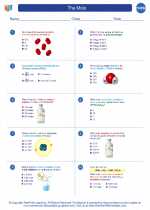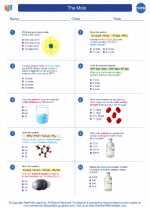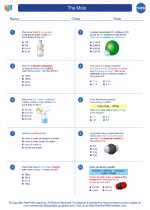Pharmaceuticals
Pharmaceuticals are substances or products used for preventing, diagnosing, and treating diseases. They can be synthetic or natural compounds that have pharmacological effects on the body. The pharmaceutical industry is responsible for the research, development, production, and distribution of pharmaceutical drugs.
Key Concepts
- Drug Development: The process of discovering and bringing new pharmaceutical drugs to the market involves various stages such as drug discovery, preclinical testing, clinical trials, and regulatory approval.
- Drug Classification: Pharmaceuticals can be classified based on their therapeutic effects, chemical structure, and mechanism of action. Common categories include analgesics, antibiotics, antivirals, antidepressants, and more.
- Pharmacokinetics: This area of study focuses on how drugs are absorbed, distributed, metabolized, and excreted by the body. Understanding pharmacokinetics is crucial for determining the appropriate dosage and administration of pharmaceuticals.
- Pharmacodynamics: Pharmacodynamics explores how drugs interact with specific drug targets in the body to produce their therapeutic effects. This includes studying drug-receptor interactions, signal transduction pathways, and molecular mechanisms of drug action.
- Drug Formulation: Pharmaceutical drugs come in various formulations such as tablets, capsules, syrups, injections, and topical preparations. Formulation science involves designing drug delivery systems to optimize the drug's efficacy and safety.
Study Guide
To better understand the field of pharmaceuticals, consider the following study approach:
- Start with the basics of chemistry, including chemical bonding, molecular structure, and functional groups.
- Learn about the principles of organic chemistry and biochemistry, as many pharmaceutical compounds are organic molecules that interact with biological systems.
- Study the fundamentals of pharmacology, including drug absorption, distribution, metabolism, and excretion, as well as mechanisms of drug action and drug-receptor interactions.
- Explore the process of drug discovery and development, including preclinical testing, clinical trials, and regulatory approval procedures.
- Understand the principles of drug formulation and delivery systems, including the design of dosage forms and drug delivery devices.
- Stay updated on current trends and advancements in the pharmaceutical industry, including personalized medicine, biopharmaceuticals, and nanotechnology-based drug delivery systems.
By mastering these concepts and study areas, students can gain a comprehensive understanding of pharmaceuticals and their role in healthcare and medicine.
.◂Chemistry Worksheets and Study Guides High School. The Mole
The resources above cover the following skills:
Chemistry II
Reactions
Use mathematical representations to analyze the proportion and quantity of particles in solution.
Equilibrium
Analyze and interpret data to explain the change in concentration of products and reactants, and the stable state achieved under reversible conditions.



